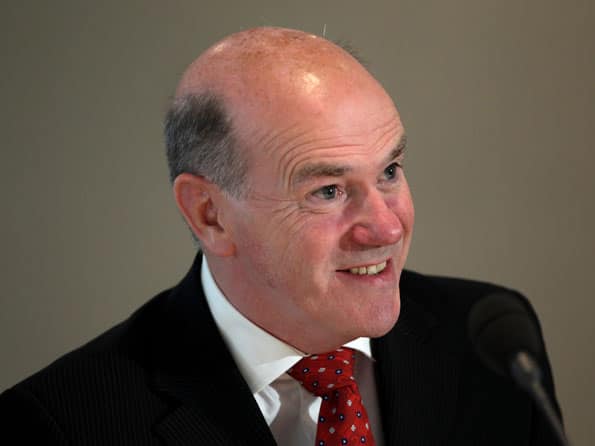
Cricket Country Staff
Editorial team of CricketCountry.
By CricketCountry Staff
Cricket governing body, the International Cricket Council (ICC) is in talks with the Interpol for making formal links to fight corruption in the sport.
Written by Cricket Country Staff
Published: Sep 30, 2011, 11:51 AM (IST)
Edited: Sep 30, 2011, 11:51 AM (IST)


The chairman of the ICC Anti-Corruption and Security Unit (ACSU), Ronnie Flanagan said that there is no money in cricket to spend for cracking down corruption © Getty Images
By CricketCountry Staff
London: Sep 30, 2011
Cricket governing body, the International Cricket Council (ICC) is in talks with the Interpol for making formal links to fight corruption in the sport.
The Interpol has contacted ICC in the wake of three Pakistan cricketers – Salman Butt, Mohammad Asif and Mohammad Aamer – being banned for a minimum of five years after they were caught in the spot-fixing scandal, reports said.
The chairman of the ICC Anti-Corruption and Security Unit (ACSU), Ronnie Flanagan said that he wants an increased co-operation with crime-fighting agencies around the globe to prevent corruption from threatening the integrity and its commercial appeal.
“The director general of Interpol made contact with us and what I am going to explore is a memorandum of understanding … so we can mutually cooperate and work together,” Flanagan said.
Recently, the Fédération Internationale de Football Association (FIFA) pledged to pay Interpol 20 million euros ($29 million) to help in cracking down the expanding threat of match-fixing and other frauds in football.
But, cricket lacks money to spend.
“We don’t have money to spend. So we can mutually cooperate and work together, but not to the extent that we have any money to pay them to do investigations for us. Unfortunately, investigations themselves fall back to our unit,” Flanagan said.
According to Flanagan, the biggest threat is in the domestic cricket leagues, where he has no authority over.
“The more we tighten up around international events and fixtures, the greater the potential risk … that these criminal people will focus elsewhere. I think we must be guarded against that,” he added.
Flanagan is a former chief constable of the Police Service of Northern Ireland, and opines that sports do not interact enough on corruption issues to share intelligence.
“I’m pretty certain that the bad guys within the sports, the malicious criminals people outside those sports don’t necessarily confine themselves to one sport. So as they move across the barriers, across different sports, we must ensure we cooperate even more closely together,” Flanagan said at a World Sports Law Report conference on gambling.
“We must share our intelligence, share our methodology, share our experiences,” he added.
Apart from the three Pakistan cricketers who were recently punished, former Pakistan captain Salim Malik was given a life ban in 2000 after being caught in fixing international matches. However, his ban was lifted eight years later.
Australian cricketers Shane Warne, Mark Waugh and Tim May had accused Malik of offering them bribes to underperform during their Pakistan tour in 1994.
This website uses cookies so that we can provide you with the best user experience possible. Cookie information is stored in your browser and performs functions such as recognising you when you return to our website and helping our team to understand which sections of the website you find most interesting and useful.
Strictly Necessary Cookie should be enabled at all times so that we can save your preferences for cookie settings.
If you disable this cookie, we will not be able to save your preferences. This means that every time you visit this website you will need to enable or disable cookies again.
